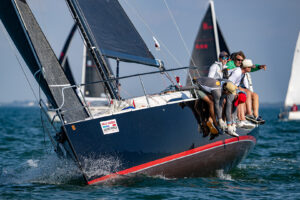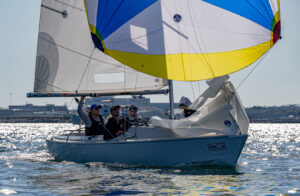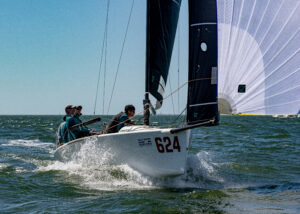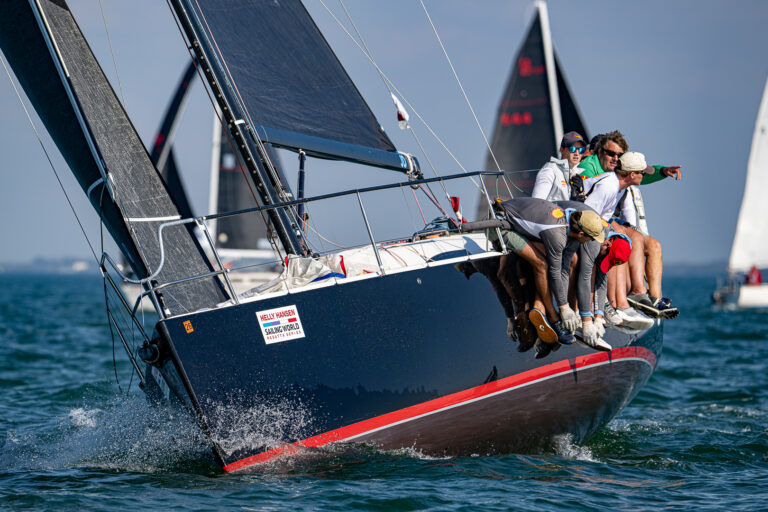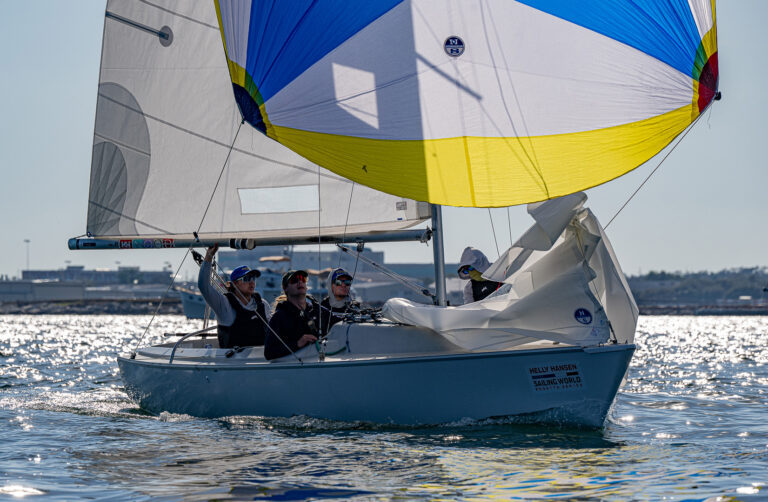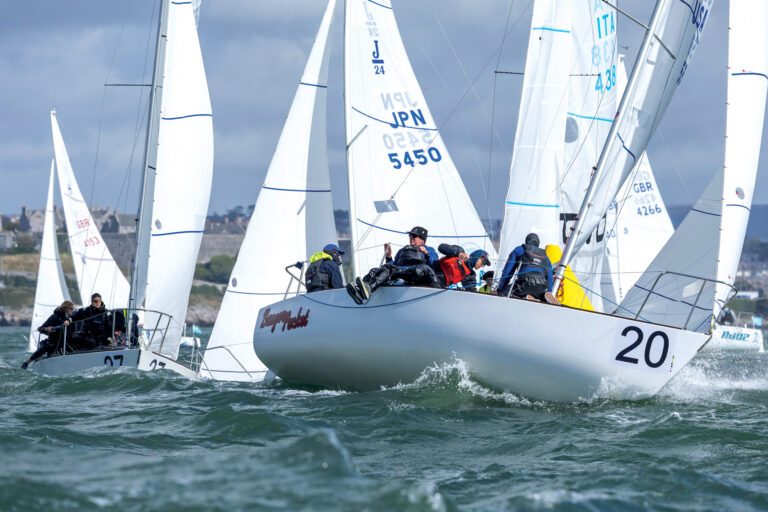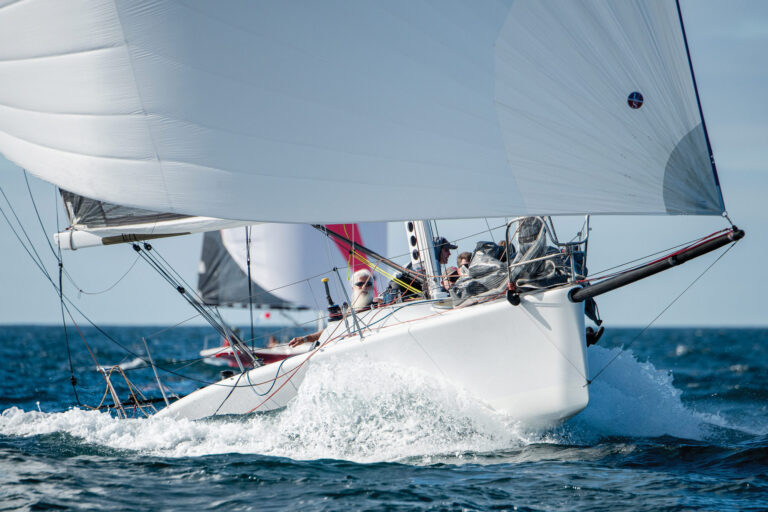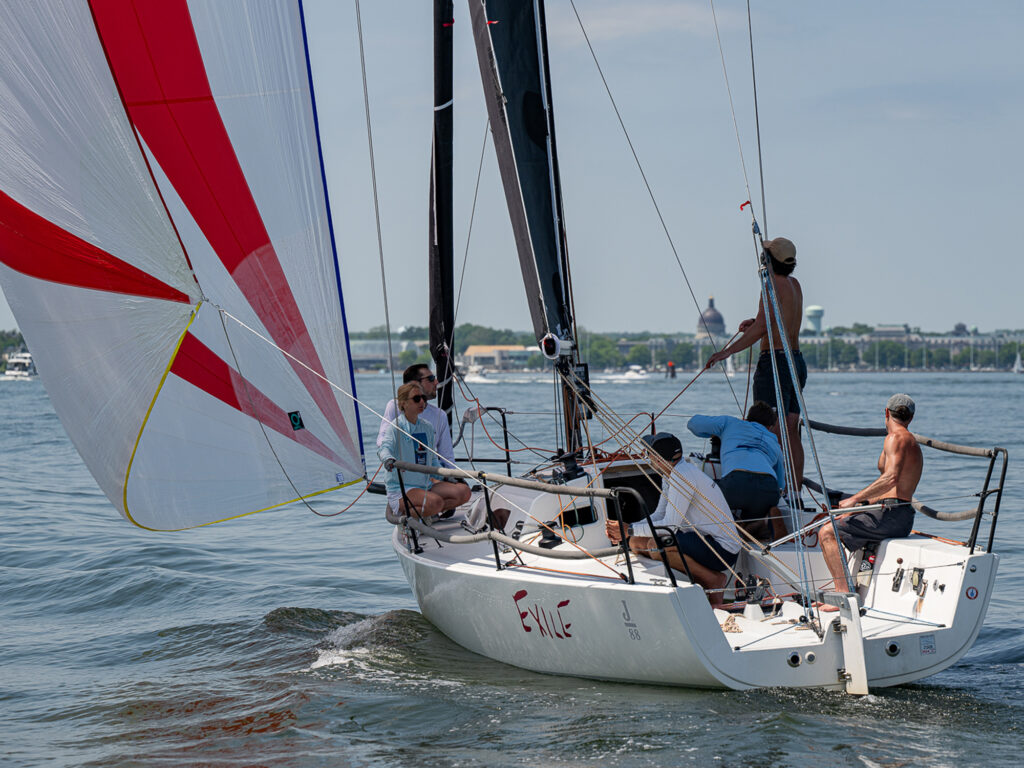
“Preparation is the key to a good performance.” Cliché? Maybe. But I say this all the time because it’s absolutely true. My teammates and I on Andy Graff’s J/88 Exile live by this rule and that’s why the program enjoyed a successful spring season with class wins at Charleston Race Week and the Helly Hansen Sailing World Regatta in Annapolis.
Know Before You Go
Our roadmap to a positive regatta experience always starts with a team Zoom or Google meetup about two months before the event. What we discuss in these virtual meetings might be surprising: We cover logistics much more than what happens onboard the yacht during racing. Logistics cover the basics: crew arrivals, accommodation check-in times, who’s responsible for the boat’s rigging and launching, and equally important, who’s handling team meals each day.
Then, it’s lining up a diver for cleaning the bottom and determining who’s charging and bringing the VHF and instruments each day. It’s answering the mundane questions: Do we need to bring our own lifejackets? What is the regatta’s social schedule? What nights are we eating at the club or venue, and are we eating out or cooking at the team house?
“The goal is to avoid any distractions from the time we want to practice to the very last race. The focus of the team needs to be on sailing faster and better, not fretting over water bottles, missing parts or meals, or scheduling.”
—Kris Werner
Next is the boatwork to-list. Specifically, what gear needs to be fixed or upgraded, is the bottom fair, do we have all the right sails, and how do we get this done before our practice day? Every possible detail gets discussed and a plan laid out. The goal is to avoid any distractions from the time we want to practice to the very last race. The focus of the team needs to be on sailing faster and better, not fretting over water bottles, missing parts or meals, or scheduling conflicts. Sailboat racing has a zillion variables on the water, so the fewer variables we face off the water the more we can focus on controlling what we can on the racecourse.
We’ll have another shorter team call, about a week out from the regatta. For this meeting we discuss any changes to the original plan or modifications that we need to make. Then, we may move to a more finite practice plan and schedule, determining the focus of the practice and lining up a tuning partner.
Practice With Purpose
Setting distinct goals for the practice day is essential. An example for us might be the following: Boat call at 0900 with final rigging, tuning, and prep, then off the dock at 1030. Let’s say the goal is to work on boathandling. We’ll check off several tacks, jibes, sets and douses, and then take a quick break to evaluate and hydrate. Then we join up with another boat for upwind tuning and practice starts and races.
We try to be back at the dock before most teams so we can get a jump on registration, apply bow numbers or decals, and deal with other last-minute items without being at the boat past 4 pm, allowing us to get back to our house, debrief, have an early dinner and make sure we’re rested.
Routines For Fluency
On race day we follow a routine of setting a boat call time to allow for morning checklists and enough time to get to the course an hour before the start. On the way out to the course I like to set the plan for the day, discuss the weather forecast, improvements from the previous day and then get right into our pre-start/tune-up routine. All that’s left to do at this point is to go race. Next day, repeat.
At Charleston Race Week, our preparation was the reason we prevailed, we were the most prepared team. At the SWRS in Annapolis, the fleet was a little bigger and the competition a good bit stronger. My suspicion is that some of the teams in Annapolis had a similar preparation plan, but looking back on what set us apart for the win, I’d say it was our time in the boat in Charleston that gave us a bit more confidence and the ability to change gears better. We had nearly the same exact crew and that cohesiveness was something the other top teams did not have, which is proof that preparation is the key, and it comes in many forms.

Kris Werner, Director of Eastern US Sales, joined Quantum with his Rochester, New York Loft, has been instrumental in the growth of Quantum’s Great Lakes region. With numerous national and North American titles to his name, Kris brings a strong foundation in one-design racing and regional development.

